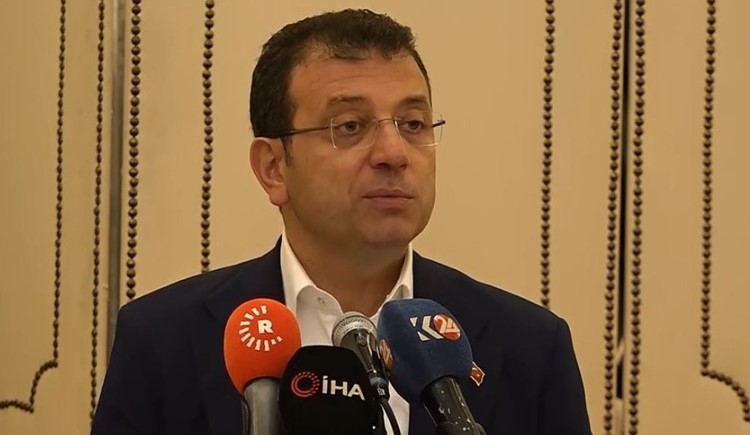By Ali Cevahir in Istanbul
[Editorial note: since the arrest of the main opposition leader and mayor Istanbul, Ekrem İmamoğlu, by the Erdoğan government, there have been massive protest demonstrations in the main cities of Turkey, notably Istanbul, Ankara and Izmir. İmamoğlu’s arrest is seen as a means of banning him from standing in the next presidential election, which, polls show, he was well placed to win. The following commentary is from our correspondent in Istanbul.]
……………………………………………..
Erdoğan and his authoritarian regime seemed to be making a preemptive strike against the political opposition in Turkey, but that plan has already failed. After the operation to arrest the main opposition leader, began on the morning of March 18, political parties and ordinary citizens were at first in despair and shocked by the unlawful waves of arrests. However, since then, massive popular protests have taken to the streets under the leadership of young university students.
Students from Istanbul University marched to the main building of the Istanbul Municipality, and from that day on, people, inspired by their courage, started gathering around the area. A new wave of arrests followed, prompted by this religious-nationalist regime, but despite attacks by the police, people have continued to march in the streets against the violation of their right to vote and to stand for elections.
There is no doubt that this did not start on March 19. Since the last presidential elections in 2023, there has been a de facto suspension of the constitution, the continued detention of an elected MP, Can Atalay, the banning of labour strikes in major cities such as Gaziantep and Izmit by governor’s decrees, the violation of the right to assembly and protest, restrictions on freedom of expression, the jailing or home detention of opposition journalists, and even the arrest of individuals over their social media posts. All these and more are signs of the transition towards a dictatorial phase of Erdoğan’s authoritarian regime.
I can summarise with several examples the nature of the regime’s actions as it shifts towards dictatorial position. First, when 17 hectares of forested land in Artvin were expropriated by a private company under the pretense of a “Tourism Area Complex,” local people attempted to block the construction machinery.
Arrested, for exposing a murder
Muhammet Ustabaş, allegedly linked to the company, attacked the villagers with a gun. Reşit Kibar, who was seriously wounded in the attack, later died, while two others sustained minor injuries. Despite witness testimonies, the gunman, Fikret Merttürk, was released. Meanwhile, activist Dursun Ali Koyuncu, who exposed the murder in a public speech, was arrested.
Second, on February 17th, Mehmet Türkmen, chairman of the United Textile, Weaving, and Leather Workers’ Union (BİRTEK-SEN), was arrested for organising the resistance of textile workers in Gaziantep. His arrest on charges of “incitement to commit a crime” and “violation of labour and working life” sparked widespread protests. Türkmen was not even allowed to present his own defence, while the strikes and demonstrations were declared illegal by the governor’s office.
Third, on March 8, International Women’s Day, even subway stations were shut down to prevent women from gathering in Taksim Square. More than 120 people were taken into custody for participating in what authorities deemed “illegal” demonstrations.
Fourth, the suppression of the people’s rights in the Kurdish region had been a common government policy, but this time, the Erdoğan regime has criminalised the alleged alliance of the opposition party, CHP, with the DEM [Peoples’ Equality and Democracy Party, a pro-Kurdish political party]. During and after the 2023 elections, Erdoğan himself admitted that this propaganda was part of their manipulative strategy. AI-generated fake videos were circulated on media platforms and at public rallies to portray CHP and DEM as affiliates of armed groups.
A superficial reading of the situation might suggest that the operation against İmamoğlu and the Istanbul municipality [which he, as mayor, controlled] has achieved its goal. By declaring Ekrem İmamoğlu and the main opposition party “corrupt”, the ruling AKP party aims to demoralise the public and enforce the belief that there is no alternative to Erdoğan and his conservative party.
However, many believe that the AKP is playing its last card. In this sense, this is not just a preemptive strike but also a panic-driven move, where the AKP are using every tool at their disposal before the collapse of their so-called “new republic.”
[Feature photograph of Mayor Ekrem Imamoglu from Wikimedia Commons, here]



